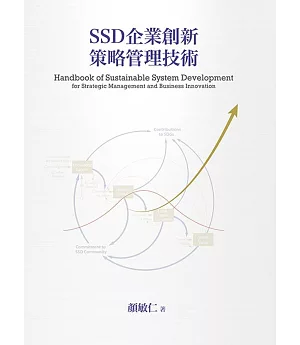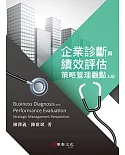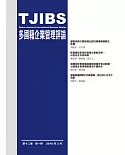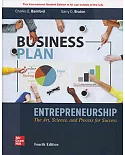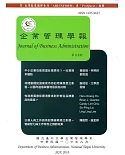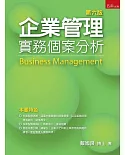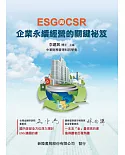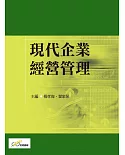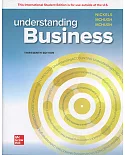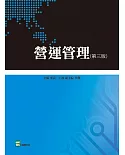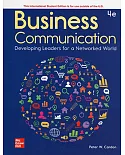第二曲線(Second Curve)指出了企業必須創新的道理 “WHY”。我們進一步需要解方。
亞馬遜飛輪效應(Amazon Flywheel Model)分享了企業創新系統模式的Know “HOW”。我們仍想知道明確的未來發展落點。
AI及大數據分析提供強大演算法預測未來 “WHERE”。然策略規劃需要有開放系統的人機互動決策支援。
洞察企業組織的過去和未來,我們需要從WHY, WHERE, HOW全面協助企業組織創新發展和動態經營管理。本書所介紹的創新管理思維和系統科學方法論,希望協助您發掘機會創造價值,建立共同願景,付諸創新實踐,鏈結城市創新與地方社會永續發展。
本書適合專業經理人、新創企業家、中小企業主、產業領導人、社會創新推動者、政策制定者、大專校院教師、博碩士生、EMBA、MBA或即將成為社會新鮮人之大學生,以及有志提升國際競爭力者。
本書內容包含四大章及SSD實務案例附錄,為政府單位產業輔導、大學及國際系統動態學臺灣分會推廣系統思考與系統動態學教材。
Description for readers
The Second Curve has pointed out the reason "WHY" companies must innovate, but we still need further solutions.
The Amazon Flywheel Model has shared the Know "HOW" of the enterprise innovation system model, but we still want to know to what specific performance might reach in the future.
AI and big data analysis have provided powerful algorithms to predict the "WHERE" in the future; however, strategic planning still requires support from decisions made by open systems of
human-computer interaction.
To gain insight into the past and future of an enterprise/organization, we need to focus on the WHY, WHERE, and HOW, so as to comprehensively assist strategic management and business
innovations for sustainable development. This book helps you discover opportunities for global values, establish a shared vision, develop a good strategic architecture, innovate with
entrepreneurial thought & actions, and better connect with the sustainable developments of cities and local communities.
This handbook is particularly recommendable to professional managers, entrepreneurs, SME owners, industry leaders, social innovation promoters, policy makers, educators, PhD and master
students, EMBA, MBA or college students who are about to become new graduates, and those who aspire to enhance their competency and global competitiveness.
作者介紹
作者簡介
顏敏仁
美國加州iiLABs產業創新研究院院長、臺灣產業創新研究院亞洲學會理事長、國際系統動態學會亞太政策委員暨臺灣分會主席、行政院陸委會臺商張老師和經濟部工業局產業園區產業創新輔導計畫主持人。曾任聯合國開發計劃署(UNDP)及日本亞洲生產力組織(APO)科技與經濟政策專家顧問、行政院國家科學委員會特約研究學者、美國西北大學(Northwestern University)及康乃爾大學(Cornell University)訪問教授。目前擔任英國「卓越經營管理」(Measuring Business Excellence)期刊亞洲主編以及SSCI/SCI國際學術期刊 “Knowledge Management Research & Practice”, “Journal of Open Innovation: Technology, Market, and Complexity”, “Sustainability”, “Electronics” 客座主編,專業領域為創新事業管理、系統動態學、決策與領導、國際企業經營策略、營運管理與數位轉型、城市創新與地方創生、產業經濟與政策分析等,並經常協助政府與國際機構進行國家治理與產業發展政策規劃研究與創新計畫推動。顏教授為文化大學商學院教授、商管所EMBA所長,長期關注且參與教育及社會服務工作,並擔任婦女權益與永續發展聯盟理事及政府單位計畫委員。
Professor Dr. Min-Ren Yan is the Executive President of iiLABs at Global Entrepreneurship and Innovation Academy. He is the Dean of Institute for Innovation Economy and MBA Program in Practicing at Chinese Culture University and the President of Taiwan Chapter of the System Dynamics Society. The mission of iiLABs is to promote Sustainable Development Goals and provide practical Sustainable System Development (SSD) education to support the governmental agencies and diverse industries for innovations and regional developments in Asia and the global value communities. Prof. Yan has been an economics and innovation policy consultant for United Nations Development Programme (UNDP) and Asian Productivity Organization (APO) in Tokyo, a Visiting Scholar and Teaching Staff at Northwestern University (NU), Visiting Associate Professor at Cornell University in USA, Adjunct Professor in world universities such as Far Eastern Federal University in Russia, University of Basilicata in Italy, DGIST Open Innovation Academy in Korea, Central University of Finance and Economics and Nanjing University in China. He is served as policy advisor to many government agencies for the policy research and implementation on the industrialized innovations and sustainable developments of national/regional/city governance system in Taiwan. As a researcher, Prof. Yan is a SSCI/SCI Journal editor and frequent contributor to SSCI/SCI/EI journals in Economics, Business, and Management fields. His works on education and life-long learning system have been recognized as Cambridge IBC Top 100 Educator.
顏敏仁
美國加州iiLABs產業創新研究院院長、臺灣產業創新研究院亞洲學會理事長、國際系統動態學會亞太政策委員暨臺灣分會主席、行政院陸委會臺商張老師和經濟部工業局產業園區產業創新輔導計畫主持人。曾任聯合國開發計劃署(UNDP)及日本亞洲生產力組織(APO)科技與經濟政策專家顧問、行政院國家科學委員會特約研究學者、美國西北大學(Northwestern University)及康乃爾大學(Cornell University)訪問教授。目前擔任英國「卓越經營管理」(Measuring Business Excellence)期刊亞洲主編以及SSCI/SCI國際學術期刊 “Knowledge Management Research & Practice”, “Journal of Open Innovation: Technology, Market, and Complexity”, “Sustainability”, “Electronics” 客座主編,專業領域為創新事業管理、系統動態學、決策與領導、國際企業經營策略、營運管理與數位轉型、城市創新與地方創生、產業經濟與政策分析等,並經常協助政府與國際機構進行國家治理與產業發展政策規劃研究與創新計畫推動。顏教授為文化大學商學院教授、商管所EMBA所長,長期關注且參與教育及社會服務工作,並擔任婦女權益與永續發展聯盟理事及政府單位計畫委員。
Professor Dr. Min-Ren Yan is the Executive President of iiLABs at Global Entrepreneurship and Innovation Academy. He is the Dean of Institute for Innovation Economy and MBA Program in Practicing at Chinese Culture University and the President of Taiwan Chapter of the System Dynamics Society. The mission of iiLABs is to promote Sustainable Development Goals and provide practical Sustainable System Development (SSD) education to support the governmental agencies and diverse industries for innovations and regional developments in Asia and the global value communities. Prof. Yan has been an economics and innovation policy consultant for United Nations Development Programme (UNDP) and Asian Productivity Organization (APO) in Tokyo, a Visiting Scholar and Teaching Staff at Northwestern University (NU), Visiting Associate Professor at Cornell University in USA, Adjunct Professor in world universities such as Far Eastern Federal University in Russia, University of Basilicata in Italy, DGIST Open Innovation Academy in Korea, Central University of Finance and Economics and Nanjing University in China. He is served as policy advisor to many government agencies for the policy research and implementation on the industrialized innovations and sustainable developments of national/regional/city governance system in Taiwan. As a researcher, Prof. Yan is a SSCI/SCI Journal editor and frequent contributor to SSCI/SCI/EI journals in Economics, Business, and Management fields. His works on education and life-long learning system have been recognized as Cambridge IBC Top 100 Educator.
目錄
第 1 章 您該懂的創新事業與動態經營管理學
一、創新事業與動態經營管理思維
二、MIT SD系統科學與策略管理意涵
三、動態經營策略管理是企業成功之鑰
四、做好策略管理就是主動選擇發展歷程
五、策略是勝於數據分析的價值領先指標
六、認知過去與未來的卓越經營策略管理
七、實戰的創新事業策略十訣
八、創新事業發展的應用實踐
九、掌握策略與數據共融的數位管理系統
十、數位經濟的企業創新經營策略健檢
第 2 章 建置企業創新策略管理電腦模型指南
一、企業價值
二、績效目標
三、未來想像
四、關鍵因素
五、存量流量
六、策略架構
七、電腦模擬
第 3 章 開放式服務創新與文化創意加值輔導
一、實戰工具指南使用說明
二、實戰工具指南
第 4 章 鏈結城市創新與社會發展以共創價值
附錄一 接軌數位經濟的企業創新應用實務案例
附錄二 因應COVID-19疫情動態與不確定環境下的創新與實務管理
The Handbook of Sustainable System Development conveys government-appointed teaching/learning materials that introduces System Dynamics, Systems Thinking and its diverse applications for sustainable system development with SDGs. There are four chapters and representative case studies from Taiwan Chapter of the System Dynamics Society: Chapter 1. Principles of systems, business dynamics and entrepreneurial thought & actions. Chapter 2. Strategic modeling for driving performance in practices. Chapter 3. Open innovation and value-added cultural and creative design thinking. Chapter 4. Bridging city-based innovation and regional social development for inclusive values.
This handbook is used for diverse educational programs and practices in both industries and public sectors, from personal advancement, resilient and systems leadership, strategic management and business innovation, organizational excellence, industrial innovation, digital economy, creative economy to city-based innovation and regional revitalization. There are discussions and case studies using System Dynamics and strategic modeling for real policy design and sustainable system development in Taiwan and Asia, including the urban development and innovation in Taipei City and university-industry alliance for regional development, industrial cluster innovation and the science park, COVID-19 protection and public healthcare system development program in Taiwan, sustainable city infrastructure management system, national park system and the cultural and creative industry cluster development.
一、創新事業與動態經營管理思維
二、MIT SD系統科學與策略管理意涵
三、動態經營策略管理是企業成功之鑰
四、做好策略管理就是主動選擇發展歷程
五、策略是勝於數據分析的價值領先指標
六、認知過去與未來的卓越經營策略管理
七、實戰的創新事業策略十訣
八、創新事業發展的應用實踐
九、掌握策略與數據共融的數位管理系統
十、數位經濟的企業創新經營策略健檢
第 2 章 建置企業創新策略管理電腦模型指南
一、企業價值
二、績效目標
三、未來想像
四、關鍵因素
五、存量流量
六、策略架構
七、電腦模擬
第 3 章 開放式服務創新與文化創意加值輔導
一、實戰工具指南使用說明
二、實戰工具指南
第 4 章 鏈結城市創新與社會發展以共創價值
附錄一 接軌數位經濟的企業創新應用實務案例
附錄二 因應COVID-19疫情動態與不確定環境下的創新與實務管理
The Handbook of Sustainable System Development conveys government-appointed teaching/learning materials that introduces System Dynamics, Systems Thinking and its diverse applications for sustainable system development with SDGs. There are four chapters and representative case studies from Taiwan Chapter of the System Dynamics Society: Chapter 1. Principles of systems, business dynamics and entrepreneurial thought & actions. Chapter 2. Strategic modeling for driving performance in practices. Chapter 3. Open innovation and value-added cultural and creative design thinking. Chapter 4. Bridging city-based innovation and regional social development for inclusive values.
This handbook is used for diverse educational programs and practices in both industries and public sectors, from personal advancement, resilient and systems leadership, strategic management and business innovation, organizational excellence, industrial innovation, digital economy, creative economy to city-based innovation and regional revitalization. There are discussions and case studies using System Dynamics and strategic modeling for real policy design and sustainable system development in Taiwan and Asia, including the urban development and innovation in Taipei City and university-industry alliance for regional development, industrial cluster innovation and the science park, COVID-19 protection and public healthcare system development program in Taiwan, sustainable city infrastructure management system, national park system and the cultural and creative industry cluster development.
網路書店
類別
折扣
價格
-
新書95折$646

